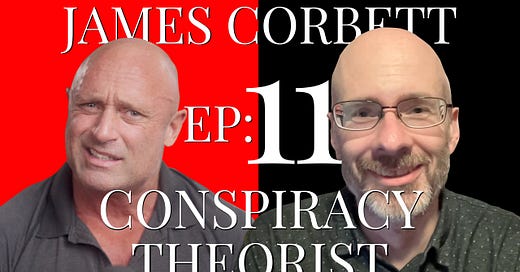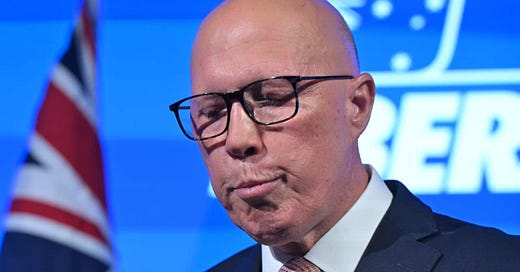
Moira Deeming And The Shrinking Church
As former Senator David Leyonhjelm adroitly explained in his recent article Libertarians And Conservatives: Similar But Different, there are both shared interests and fundamental differences between libertarians (or classical liberals) and conservatives.
For decades, the Liberal Party sought to balance these tensions, referring to itself internally as a “broad church”. As a libertarian who was once a Young Liberal and enthusiastically involved in the Liberal Party at all levels, I took pride in feeling that (while often at the margins) there was a place for libertarian ideas alongside conservative ones.
So why is it that party members from both sides of the Liberal Party’s twin political heritage are looking at it with increasing dismay,
and abandoning it in greater numbers than ever before?
Over the past month I have heard two descriptions of the Liberal Party that were remarkably similar, from people who had not had an opportunity to compare notes.
Libertarian Party MLC John Ruddick described the modern Liberal Party as “a once great manor house, that still looks good from the outside, but has fallen into disrepair, with the carpets and curtains decaying inside”.
Less than a day later, twenty-year Liberal Party member and now a Libertarian Party member, Gideon Rozner said, “The Liberal Party today… it’s like when you go to a tennis or sports club, and the club rooms are a mess and the facilities in disrepair”.
Simply put, the Party is rapidly ceasing to exist as an entity made up of grassroots members that exist outside of parliaments.
The Moira Deeming saga epitomises the identity crisis the parliamentary Liberal Party faces.
Having lost the compass points of both libertarian and conservative values,
the modern Liberal leadership finds itself adrift in a sea of woke intersectional tides.
Pesutto, like the dying days of the Napthine government in 2014, is desperately trying to appease a vocal section of the electorate which will never vote for him no matter how much he virtue signals to win their favour.
In 2014, Denis Napthine led the Victorian Liberal Party into what was meant to be an unlosable re-election for a second term after 14 years in opposition following the defeat of Jeff Kennet in 1996.
His campaign slogan was ‘Jobs and growth’. Victorian voters were faced with a choice between Pepsi or Pepsi-Max, and perhaps unsurprisingly they chose Pepsi.
By turning a disagreement between himself and a first term backbencher into an existential challenge to his leadership, Pesutto has made it clear that the modern Liberal Party is not in the business of ideas.
Party members, libertarians and conservatives alike, rightly see Moira Deeming’s exile as a proxy for the treatment they could expect if they expressed the wrong kind of ideas, or any at all.
As a libertarian in the Liberal Party, I used to rationalise my continued participation as “helping to make the party better” and “changing from within”. Looking back on that time honestly, I wanted to have good ideas, but wasn’t prepared to sacrifice political power or a future political career to defend them.
Several first term MLCs who were in my graduating class of Young Liberal aspiring politicians voted to expel Moira Deeming, likely not because they thought it was right but because they felt dissent would have killed their political future.
In the current state of the Liberal Party in Victoria, they were probably correct, and the lesson for grassroots members should be to seek political homes that welcome their ideas, rather than silence them.
A secondary lesson for those outside of major party politics, is that while there is much to be gained from co-operation between those with different ideas but shared interests, there is just as much to lose by believing in nothing except winning elections.
The post Moira Deeming And The Shrinking Church appeared first on Liberty Itch.












